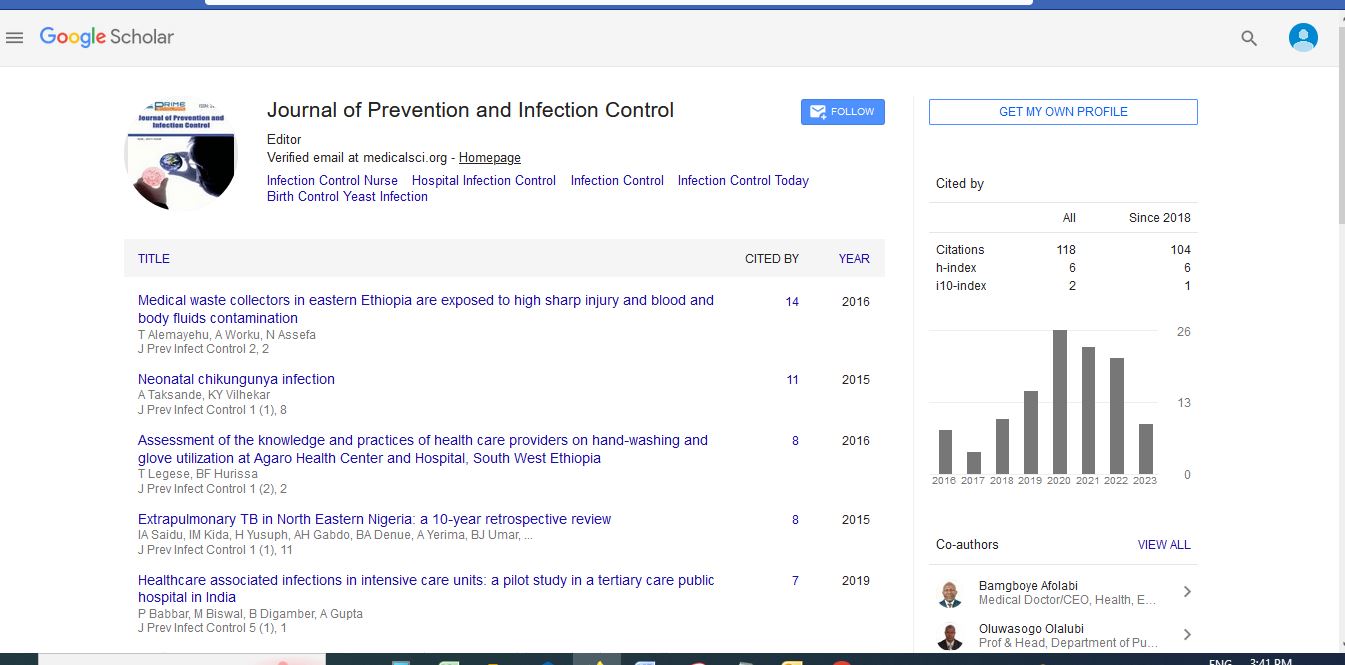Journal of Prevention and Infection Control Open Access
- ISSN: 2471-9668
-
Journal h-index: 8
- Journal CiteScore: 1.11
- Journal Impact Factor: 1.04
- Average acceptance to publication time (5-7 days)
-
Average article processing time (30-45 days)
Less than 5 volumes 30 days
8 - 9 volumes 40 days
10 and more volumes 45 days


